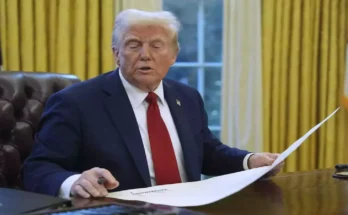Hong Kong legislator Wu Jiexhuang suggests using the city’s “one country, two systems” framework to include Bitcoin in its national reserves to enhance financial security. He suggests studying the impact of U.S.-based Bitcoin ETFs on the market as a preliminary step.
Jiexhuang emphasized the global acceptance of Bitcoin, comparing it to countries like El Salvador and Bhutan and some US states, and cited President-elect Trump’s proposal to classify Bitcoin as a strategic reserve asset.
Lawmakers Support Bitcoin ETFs as a Way to Access the National Reserve
Jiexhuang urged Hong Kong authorities to include Bitcoin in ETFs as a first step, potentially increasing Bitcoin holdings. He argued this would attract talent and investment, reinforce financial stability, and mitigate market disruptions caused by Bitcoin’s widespread adoption, thereby securing Hong Kong’s competitive edge.
The legislator suggested that holding Bitcoin in strategic reserves could stabilize its value as more countries adopt it, reducing reliance on traditional assets and potentially impacting fiscal reserves tied to those assets, as major economic powers include Bitcoin in their reserves.
Hong Kong’s Financial Services and Treasury Bureau plans to regulate cryptocurrencies under the principle of “same business, same risks, same rules.” China currently holds 190,000 Bitcoin through confiscations, ranking second globally. Hong Kong legislator Johnny Ng announced efforts to explore Bitcoin’s potential role in the region’s reserves in mid-2024.
In terms of cryptocurrency licensing, Singapore surpasses Hong Kong.
Singapore has increased its cryptocurrency licenses to 13 in 2023, doubling the number granted in 2023, while Hong Kong has only issued seven platform licenses, with four being restricted approvals granted in December, indicating a lack of progress in promoting crypto-friendly financial centers.
Hong Kong’s stricter rules, allowing trading only in highly liquid cryptocurrencies like Bitcoin and Ether, have made it less appealing for crypto firms, leading to the withdrawal of prominent exchanges like OKX and Bybit and the exclusion of smaller altcoins.
China’s strict stance on cryptocurrency trading adds to Hong Kong’s unique challenges, creating a distinct risk profile and deterring some businesses from pursuing opportunities in the city.
A Hong Kong Legislative Council member has criticized the country’s cryptocurrency licensing system, citing its impact on market confidence. The lawmaker attributed the withdrawals to the Hong Kong SFC requirement, which mandates non-Malay user licenses.



